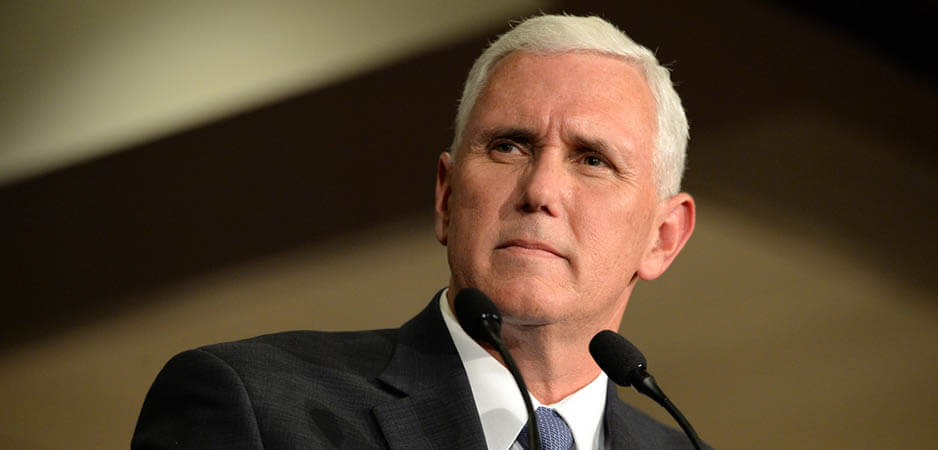Everyone in the US knows “time is money,” but depending on whom you vote for, time past is worth more than time future, or vice versa. The Daily Devil’s Dictionary reports.
In a spat with US Vice President Mike Pence, former Attorney General Eric Holder tweeted: “’Make America great again’ means YOU think America is not great now-and is backward looking. America is at its best when we look forward, embrace an uncertain future and make it ours. That is what defines American greatness.”
Here is today’s 3D definition:
Backward looking:
An insulting term used by people who have a sense of their own empowerment and believe themselves to be assertive progressive thinkers. The term describes someone either obsessed by the wish to return to an imaginary past or someone who is simply unconvinced of what is assumed to be an elementary truth: that the proper attitude is to forget the past and stake a claim on the future.
Contextual note
Americans, and more particularly American politicians, have always had a problem with time, especially historical time. Does the nation’s history fit into the European timeline, but as a late arrival? Or did the founders create a new dimension of historical time linked to their projects? If so, is it a reflection of what they see as their heroic past — the acts of the founders and the pioneers who followed — or is it more about the incessant dynamism of the culture, constantly producing a better future?
This dichotomy seems to define the difference between Republicans — focused on the past whose “greatness” was modeled by its heroes — and Democrats who see the nation’s historical mission as one of leading the world into its future. There is some spillover between these two subcultures: Republicans see the past as providing a model for the future and Democrats see the acts of the past as an inspiration for conquering the future.
The tiff between Pence and Holder makes this clear. Personalities like Mike Pence, Donald Trump and Steve Bannon see the cultural impulse that set the US on its course to global leadership as something that has been recently compromised by multiculturalism. It is losing an identity that must be restored. Holder claims that the process is exactly what defines that identity and the future we are now creating will justify it.
In contrast with both Holder and Pence, the Anglo-American poet T.S. Eliot wrote some memorable lines about time in “Burnt Norton,” the first of his Four Quartets. Unlike poets, politicians clearly have more pressing things to do than tease out the famous philosophical problem of the nature of time.
“Time present and time past
Are both perhaps present in time future,
And time future contained in time past.
If all time is eternally present
All time is unredeemable.”
As Edward T. Hall conclusively demonstrated in his book The Silent Language, every culture treats time differently. The fact that Eliot was born American and naturalized British after settling as an adult in London may have incited him to adopt a broader and more nuanced notion of time, as did the poet’s interest in the work of the French philosopher Henri Bergson, whose lectures he attended in Paris.
Historical note
For a nation whose creation represented a voluntary break with the past, the exploration of historical truth has never been a major preoccupation, either in politics or education. The educational tradition presents history as essentially a series of forward-looking events that led, in 1776, to the birth of a nation whose initial destiny (in the 19th century) was to dominate a continent and subsequently, in the 20th century, to dominate the world by imposing its neoliberal economic model and its conception of representative democracy as the unique and unequivocal standard for the rest of humanity.
Democrats, such as Holder, focus on the forward, teleological movement of history that assumes the US cultural system is not only the model for all nations, but a model desired by all people. Pence’s Republicans, sensing a weakening in recent years of the global position of the US as a cultural force, shy away from the logic of the process and focus on the glorious and glorified events.
From the War of Independence to World War II and the collapse of the Soviet Union, these events enabled the US to become the world’s unique hyperpower. When Francis Fukuyama declared the “end of history” in 1992, he envisioned the future as packaged and sealed and history redefined as our memories of the past. Fukuyama’s current doubts about when the end will be achieved leave an opening for both Holder and Pence.
The two visions do have something in common. They both trivialize the responsibility associated with history. When the presidential candidate Barack Obama promised to punish the war criminals in the Bush administration and on becoming president relented, claiming that we “need to look forward as opposed to looking backward,” he provided Attorney General Holder, the man who should have led the criminal proceedings, with the argument he is now using.
As a result of Obama’s forward-looking policy, Pence’s Republican colleagues — George W. Bush, Dick Cheney, Donald Rumsfeld and Co. — escaped both prosecution and the assignment of responsibility for the consequences of their own past deeds. US history, as often happens, by an act of forgetfulness was cleansed of its sins.
Today’s news provides another illustration of the cultural misunderstanding between those who see history, like Eliot, as a convergence of past, present and future and those representatives of US culture who want to see as irrelevant everything other than its glorious, triumphant moments, the ones that make us feel “great again.”
The Miami Herald condescendingly reports on “Mexico’s President Andres Manuel López Obrador’s demand that Spain officially apologize for the Spanish conquest almost 500 years ago.” They call it “the latest example of his ridiculous obsession with the past.” Sounding like an Obama-Holder Democrat, they complain that, “By comparison, López Obrador rarely speaks about science, technology, innovation, quality education or other topics of the future, which are key to Mexico’s ability to be competitive in the global economy.”
In those two sentences, the underlying ideology that unites Democrats and Republicans, and therefore most Americans, stares out at us, helping to define a key feature of US culture. The sins of the past must be erased from memory, even when we are reminded of their consequences in the present. In parallel, we must focus on one of the glories of US civilization: the science and technology that define modernity and provide the foundation of the advanced neoliberal economic and political order.
Of course for US media, López Obrador is a “socialist,” guilty of resisting the arc of history that bends toward the establishment of a US-led neoliberal order.
*[In the age of Oscar Wilde and Mark Twain, another American wit, the journalist Ambrose Bierce, produced a series of satirical definitions of commonly used terms, throwing light on their hidden meanings in real discourse. Bierce eventually collected and published them as a book, The Devil’s Dictionary, in 1911. We have shamelessly appropriated his title in the interest of continuing his wholesome pedagogical effort to enlighten generations of readers of the news.]
The views expressed in this article are the author’s own and do not necessarily reflect Fair Observer’s editorial policy.
Support Fair Observer
We rely on your support for our independence, diversity and quality.
For more than 10 years, Fair Observer has been free, fair and independent. No billionaire owns us, no advertisers control us. We are a reader-supported nonprofit. Unlike many other publications, we keep our content free for readers regardless of where they live or whether they can afford to pay. We have no paywalls and no ads.
In the post-truth era of fake news, echo chambers and filter bubbles, we publish a plurality of perspectives from around the world. Anyone can publish with us, but everyone goes through a rigorous editorial process. So, you get fact-checked, well-reasoned content instead of noise.
We publish 2,500+ voices from 90+ countries. We also conduct education and training programs
on subjects ranging from digital media and journalism to writing and critical thinking. This
doesn’t come cheap. Servers, editors, trainers and web developers cost
money.
Please consider supporting us on a regular basis as a recurring donor or a
sustaining member.
Will you support FO’s journalism?
We rely on your support for our independence, diversity and quality.






